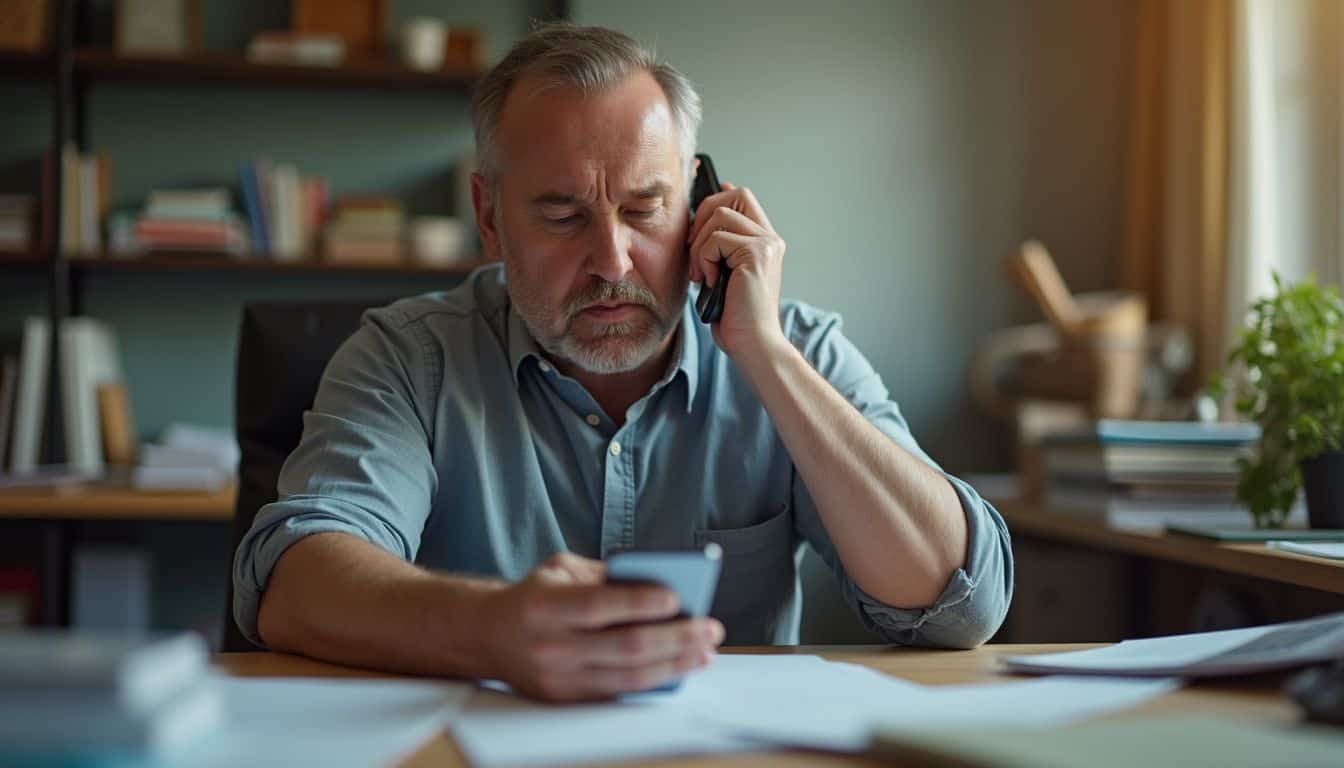Do you ever finish a day of listening to music or podcasts and feel a weird ringing in your ears? Or maybe you find yourself asking people to repeat themselves more often in noisy restaurants?
You’re definitely not imagining it.
With headphones and speakers being a constant part of our lives, noise-induced hearing loss is becoming incredibly common. In fact, the World Health Organization (WHO) warns that over a billion young adults are at risk for permanent hearing loss from unsafe listening habits.
But here’s the good news, protecting your ears doesn’t have to be complicated. I’m going to walk you through some simple, powerful habits to help you maintain optimal hearing health for years to come.
Key Takeaways
Follow the 60/60 rule for personal devices: listen at no more than 60% of the maximum volume for no longer than 60 minutes at a time. Consider using over-the-ear or noise-canceling headphones to block external sounds.
Wear hearing protection at loud venues like concerts or sports games, where noise can exceed 94-115 decibels (dB). Also, use them when using loud equipment like lawnmowers (80-100 dB) or motorcycles (80-110 dB).
Stop using cotton swabs inside your ears, as they can cause serious injury. Clean the outer ear with a washcloth and tilt your head to drain water after swimming. If you have pain or ringing, see an audiologist.
Incorporate foods rich in omega-3s (like salmon), zinc (like oysters and nuts), and magnesium (like bananas and whole grains) into your diet. Regular exercise also boosts circulation to the inner ear, which is especially important as we age.
Schedule a baseline hearing test with an audiologist. The American Speech-Language-Hearing Association (ASHA) recommends a test every decade for adults until age 50, and then every three years after that. Be aware that over 200 common drugs, including aspirin and ibuprofen, can potentially cause hearing loss.
Table of Contents
Protect Your Ears from Loud Noises

Loud noise can sneak up on you, turning a fun event into a night of ringing ears or even causing permanent hearing loss. Getting into the habit of using earplugs or noise-canceling headphones in loud environments is one of the best things you can do for your long-term hearing health.
How can I limit volume on headphones and speakers?
It’s so easy to get lost in a great playlist or podcast and not realize the volume is creeping up. Many of us have felt that familiar ringing after a long listening session.
A great guideline to follow is the 60/60 rule: listen at no more than 60% of the maximum volume for no more than 60 minutes at a time before taking a break. This gives the tiny hair cells in your inner ear a chance to rest and recover.
You can also make smarter choices about your gear.
- Over-the-ear headphones are often a better choice than earbuds because they create a natural seal that blocks outside noise, meaning you don’t have to turn the volume up as high.
- Noise-canceling headphones take this a step further, actively blocking ambient sound. This is a fantastic feature for commutes or noisy offices.
- Many smartphones have built-in safety features. For example, Apple’s iPhone includes a “Headphone Safety” setting that can monitor your audio levels and send you an alert if you’ve been listening too loudly for too long.
- You can also download a free decibel meter app, like the NIOSH Sound Level Meter, to get a real-time reading of how loud your environment is.
For more great safety tips, you can check out resources from organizations like VIP Hearing Solutions UK.
When should I use earplugs or earmuffs in noisy places?
That ringing in your ears after a concert isn’t a badge of honor, it’s a warning sign from your body. Any sound over 85 decibels (dB) can cause permanent damage, and many everyday situations are much louder than that.
Think about grabbing hearing protection in these situations:
| Activity | Typical Decibel (dB) Level | Why It Matters |
|---|---|---|
| Concerts & Nightclubs | 110-120 dB | Damage can occur in less than 2 minutes at these levels. High-fidelity earplugs like Loop Experience or Eargasm reduce volume without muffling the sound. |
| Sporting Events | 94-115 dB | Crowd noise at a stadium can be dangerously loud. Inexpensive foam earplugs work well here. |
| Mowing the Lawn | 80-100 dB | Consistent exposure from yard work adds up over time. Earmuffs are a great option. |
| Fireworks Displays | 150-160 dB | This is loud enough to cause immediate damage. Always wear protection. |
| Riding a Motorcycle | 80-110 dB | Wind noise alone can be damaging. Wear earplugs under your helmet. |
Even if you’re just at a loud bar where you have to shout to be heard, that’s a good sign it’s time for some ear protection.
Why are regular breaks from loud areas important?
Using hearing protection is crucial, but so is stepping away from the noise altogether. Taking breaks gives the delicate structures in your auditory system a chance to recover from the constant barrage of sound waves.
Think of it as preventing auditory fatigue. When your ears are overworked, you can experience a Temporary Threshold Shift (TTS), which is why sounds might seem muffled after a loud event. While your hearing usually returns to normal, repeated TTS can lead to permanent hearing loss over time.
Experts at the Occupational Safety and Health Administration (OSHA) recommend taking breaks from noisy environments to reduce your overall exposure and protect your long-term hearing health.
After a loud concert or a long shift in a noisy workplace, try to spend at least 15 minutes in a quiet space. I’ve found that sitting in my car in silence for a few minutes after a busy event helps the ringing in my ears fade much faster.
Maintain Healthy Ear Hygiene

When it comes to ear cleaning, less is definitely more. Proper hygiene is all about protecting the delicate balance of your ear canal and preventing issues that can lead to dizziness or infections.
Why should I avoid using cotton swabs in my ears?
It might feel satisfying, but using cotton swabs inside your ear canal is a major mistake. The American Academy of Otolaryngology strongly advises against it, and for good reason.
Instead of removing earwax, swabs push it deeper into the ear canal, which can lead to impaction, blockages, and temporary hearing loss. Worse, you risk injuring the delicate skin of the ear canal or even perforating your eardrum.
A 2017 study published in *The Journal of Pediatrics* revealed just how common these injuries are. Researchers found that from 1990 to 2010, an estimated 263,000 children were treated in U.S. emergency rooms for cotton swab-related ear injuries, which is about 34 injuries every day.
Your ears are designed to be self-cleaning. A gentle wipe of the outer ear with a washcloth is all you need.
How can I keep my ears dry to prevent infections?
Trapped water creates a perfect environment for bacteria to grow, leading to painful infections like swimmer’s ear (otitis externa). Keeping your ears dry is a simple way to prevent this.
- After swimming or showering, tilt your head to each side and gently tug on your earlobe to help any trapped water drain out.
- Use a soft towel or a hairdryer on its lowest, coolest setting (held at a distance) to dry the outer ear.
- If you swim frequently, consider investing in a pair of swimmer’s earplugs.
- Over-the-counter drops, like Auro-Dri, contain isopropyl alcohol to help dry out the ear canal. Just be sure to check with your doctor before using them, especially if you have sensitive skin or a history of ear problems.
When and how should I use peroxide or ear drops safely?
If you do have an earwax buildup, it’s best to handle it gently. Over-the-counter earwax removal kits, such as Debrox, use a solution of carbamide peroxide to soften the wax so it can come out on its own.
Here’s how to use them safely:
- Lie on your side and use the dropper to apply 3-5 drops into your ear canal.
- You might feel a slight bubbling or tingling, which is normal. Stay on your side for a few minutes to let the solution work.
- Gently flush your ear with warm water using a bulb syringe.
Important Warning: Never use any kind of ear drops if you have a history of ear surgery or suspect you might have a perforated eardrum (symptoms include sudden pain, drainage, or hearing loss). In these cases, it’s essential to see an ENT (otolaryngologist) for professional care.
Support Hearing Health Through Lifestyle Choices

Your daily choices have a huge impact on your overall wellness, and that includes your hearing health. Simple habits related to diet, exercise, and stress management can make a real difference in protecting your ears for the long haul.
What foods rich in omega-3s, magnesium, and zinc support hearing?
Just like the rest of your body, your ears benefit from a nutrient-rich diet. Certain minerals and vitamins play a key role in maintaining the delicate structures of the inner ear.
- Omega-3 Fatty Acids: Found in fish like salmon and tuna, omega-3s have been linked to a reduced risk of age-related hearing loss. They help strengthen the blood vessels in the inner ear.
- Zinc: This mineral is crucial for the immune cells in your ear and can help ward off infections. Oysters are packed with zinc, but you can also find it in nuts, dark chocolate, and dairy products.
- Magnesium: Found in foods like bananas, almonds, and whole grains, magnesium may help protect the delicate hair cells in your inner ear from noise damage.
- Potassium: This mineral helps regulate the fluid in your inner ear, which is vital for both hearing and balance. You can find it in bananas, cantaloupe, and yogurt.
How does regular exercise improve hearing health?
Getting your body moving is one of the best things you can do for your ears. Regular physical activity improves blood circulation, ensuring that the tiny, sensitive parts of your inner ear get the oxygen and nutrients they need to stay healthy.
Poor circulation is a major contributor to hearing loss, especially as we get older. The Centers for Disease Control and Prevention (CDC) notes that about 25% of adults aged 65-74 have disabling hearing loss. Regular exercise helps combat this by keeping your cardiovascular system in top shape.
Whether it’s a brisk walk, a yoga class, or dancing around your kitchen, aiming for at least 30 minutes of moderate activity most days of the week will benefit your entire body, including your ears.
How do smoking and alcohol affect hearing?
Smoking is incredibly damaging to your hearing. The nicotine and carbon monoxide in cigarettes can restrict blood flow to the inner ear and damage the delicate hair cells responsible for translating sound vibrations into nerve signals.
A study in the *Journal of the American Medical Association* found that smokers were nearly 1.7 times more likely to develop hearing loss than non-smokers.
Excessive alcohol consumption can also harm your hearing. Alcohol can damage the auditory nerve and create a toxic environment in the inner ear. It can also interfere with the brain’s ability to process sound, which is why conversations can seem harder to follow after a few drinks.
What relaxation techniques help manage stress for better hearing?
Have you ever noticed your ears ringing more when you’re stressed out? There’s a direct link. When you’re stressed, your body releases hormones like cortisol, which can trigger a “fight-or-flight” response. This response can reduce blood flow to your ears and is a known trigger for tinnitus (ringing in the ears).
Incorporating relaxation techniques into your routine can help manage this stress.
- Meditation and Deep Breathing: Apps like Calm or Headspace offer guided meditations that can lower blood pressure and reduce stress hormones. Even a few minutes of deep breathing can help.
- Yoga: This practice combines physical movement with mindfulness, improving circulation and calming the nervous system.
- Walks in Nature: Spending time outside has been shown to lower stress levels.
- Soft Music: Listening to gentle, calming sounds can soothe your auditory system after a noisy day.
Monitor and Prevent Hearing Damage

Catching the early signs of hearing loss can make a huge difference in managing it effectively. Paying attention to subtle changes and knowing when to talk to a professional will help you stay on top of your ear health.
What are the early signs of hearing loss?
Hearing loss often happens so gradually that you might not notice it at first. Here are some of the common early warning signs to watch for:
- You frequently ask people to repeat themselves.
- You turn up the volume on the TV or radio louder than others prefer.
- You have difficulty following conversations in noisy places like restaurants.
- You experience a persistent ringing, buzzing, or hissing sound in your ears (tinnitus).
- Sounds seem muffled, or you feel like others are mumbling.
- You have trouble hearing high-pitched sounds, like birds chirping or a child’s voice.
- You find yourself feeling tired or stressed from straining to hear.
- You have a feeling of fullness or pressure in your ears.
If any of these sound familiar, it’s a good idea to schedule a hearing test.
How can I protect my ears at work or during recreation?
Beyond the obvious places like concerts, many jobs and hobbies can expose you to harmful noise levels. Protecting your ears in these situations is key to preventing long-term damage.
- At Work: If you work in a factory, on a construction site, or in any environment where you have to raise your voice to be heard, your employer is required by OSHA to provide hearing protection. Make sure you use it consistently.
- During Hobbies: Think about activities like woodworking with power tools, attending motorsports events, or even using a leaf blower. Earmuffs are an excellent choice for these situations as they are easy to take on and off.
- Fitness Classes: Music in spin or aerobics classes can often exceed safe volume levels. Don’t be afraid to wear a pair of high-fidelity earplugs.
- Give Your Ears a Rest: After prolonged exposure to noise, try to spend some time in a quiet environment to give your ears a chance to recover.
Which medications might harm hearing and how can I be cautious?
It might surprise you to learn that some common medications can be harmful to your hearing. This is known as ototoxicity, and according to the American Speech-Language-Hearing Association, over 200 prescription and over-the-counter drugs have been identified as potentially ototoxic.
Some of the most common categories include:
- Pain Relievers: High doses of aspirin, ibuprofen (Advil, Motrin), and naproxen (Aleve) have been linked to temporary hearing loss and tinnitus.
- Certain Antibiotics: A class of antibiotics called aminoglycosides (like gentamicin and tobramycin) are known to carry a risk of permanent hearing damage.
- Cancer Drugs: Chemotherapy drugs like cisplatin and carboplatin can cause significant hearing loss.
- Loop Diuretics: These medications, used to treat high blood pressure and heart failure, can also affect hearing.
Always talk to your doctor or pharmacist about the potential side effects of any new medication. If you start a new drug and notice ringing in your ears or a change in your hearing, report it immediately.
Seek Regular Professional Care
Just like regular dental check-ups, scheduling routine hearing tests is a vital part of your long-term health care. An audiologist can spot issues you might not even be aware of and help you take steps to protect your hearing.
How often should I schedule hearing tests with an audiologist?
It’s a great idea to get a baseline hearing test done, even if you don’t think you have a problem. This gives your audiologist a reference point to track any changes over time.
The American Speech-Language-Hearing Association (ASHA) recommends the following schedule for adults:
- Under 50: A hearing screening at least once every decade.
- Over 50: A hearing screening every three years.
Of course, if you have a known hearing loss, wear hearing aids, or are regularly exposed to loud noise, you should get checked more frequently, likely on an annual basis.
When should I consult a professional about changes in my hearing?
Don’t wait for your next scheduled test if you notice a sudden change in your hearing. It’s important to see a professional right away if you experience any of the following:
- Sudden Hearing Loss: If you lose hearing in one ear suddenly, it’s considered a medical emergency.
- Persistent Tinnitus: Ringing in the ears that lasts for more than a day or is getting worse.
- Pain or Drainage: These could be signs of an infection or injury.
- Dizziness or Vertigo: Your balance system is located in your inner ear, so these symptoms can be related to hearing health.
Your primary care doctor, an audiologist (who specializes in testing hearing), or an otolaryngologist (an ENT doctor) can all help diagnose the issue and recommend the right course of action.
How Will Hearing Health Change in 2025?
The world of hearing health is seeing some amazing advancements this year. According to the WHO, by 2050 nearly 2.5 billion people are projected to have some degree of hearing loss, making these innovations more important than ever.
One of the biggest developments is in hearing aid technology. New devices like the Starkey Genesis AI and Oticon Real use artificial intelligence to process sound more like a human brain. The Starkey Genesis AI can make up to 80 million adjustments per hour automatically, which can improve speech understanding in noisy environments by up to 30%.
We’re also seeing the rollout of Bluetooth Auracast, a new technology that will allow an unlimited number of hearing aids and earbuds to connect to a single audio source in public places like airports and theaters. This will be a huge benefit for anyone who is hearing-impaired.
Finally, the field of regenerative medicine is making incredible strides. Researchers are actively working on gene therapies and stem cell treatments that could one day restore hearing function for certain types of deafness. A 2025 study reported in *ScienceDaily* showed a gene therapy that significantly restored hearing in children with a specific genetic mutation after just a single injection. While these treatments are still in clinical trials, they offer tremendous hope for the future.
People Also Ask
What are the main causes of hearing loss?
The main causes of hearing loss include excessive noise, chronic ear infections, and even certain medications like high-dose aspirin. Research shows smoking can increase your risk of hearing loss by nearly 70 percent, making smoking cessation a key preventative step for your ear health.
How do I protect my ears from excessive noise?
A good rule of thumb for headphone use is the 60/60 rule, which means listening at 60% of the maximum volume for no more than 60 minutes at a time. For loud events like concerts or sports games, consider using high-fidelity hearing protection to lower the decibels without muffling the sound.
Are cotton swabs safe for cleaning my ears?
No, cotton swabs often push earwax deeper into the ear canal, which can lead to earwax buildup or even a punctured eardrum. A 2017 study found that over 12,000 children end up in the emergency room each year due to cotton swab-related ear injuries.
Can exercise help with ear health?
Yes, a healthy lifestyle that includes regular cardiovascular exercise like brisk walking or cycling improves blood flow to the delicate hair cells in your inner ear, which helps keep them nourished and healthy.
When should I consider devices like hearing aids or cochlear implants?
If you constantly struggle to follow conversations or experience ringing in the ears, you should see an audiologist right away for a hearing test.
References
https://www.nidcd.nih.gov/health/listen-infographic (2025-04-16)
https://health.clevelandclinic.org/ear-care-and-hygiene
https://www.advancedspecialtyassociates.com/5-lifestyle-habits-for-preventing-hearing-loss/
https://eyeandear.org.au/patients-visitors/fact-sheets/hydrogen-peroxide-for-ear-infections-wax/
https://pubmed.ncbi.nlm.nih.gov/30043448/
https://www.trihealth.com/blogs/speech-and-hearing/how-exercise-can-affect-your-hearing-health
https://pmc.ncbi.nlm.nih.gov/articles/PMC10329914/
https://midwestaudiology.net/smoking-alcohol-hearing-health/
https://hearingassociatesofdothan.com/how-often-should-adults-get-hearing-tests/ (2023-12-28)
